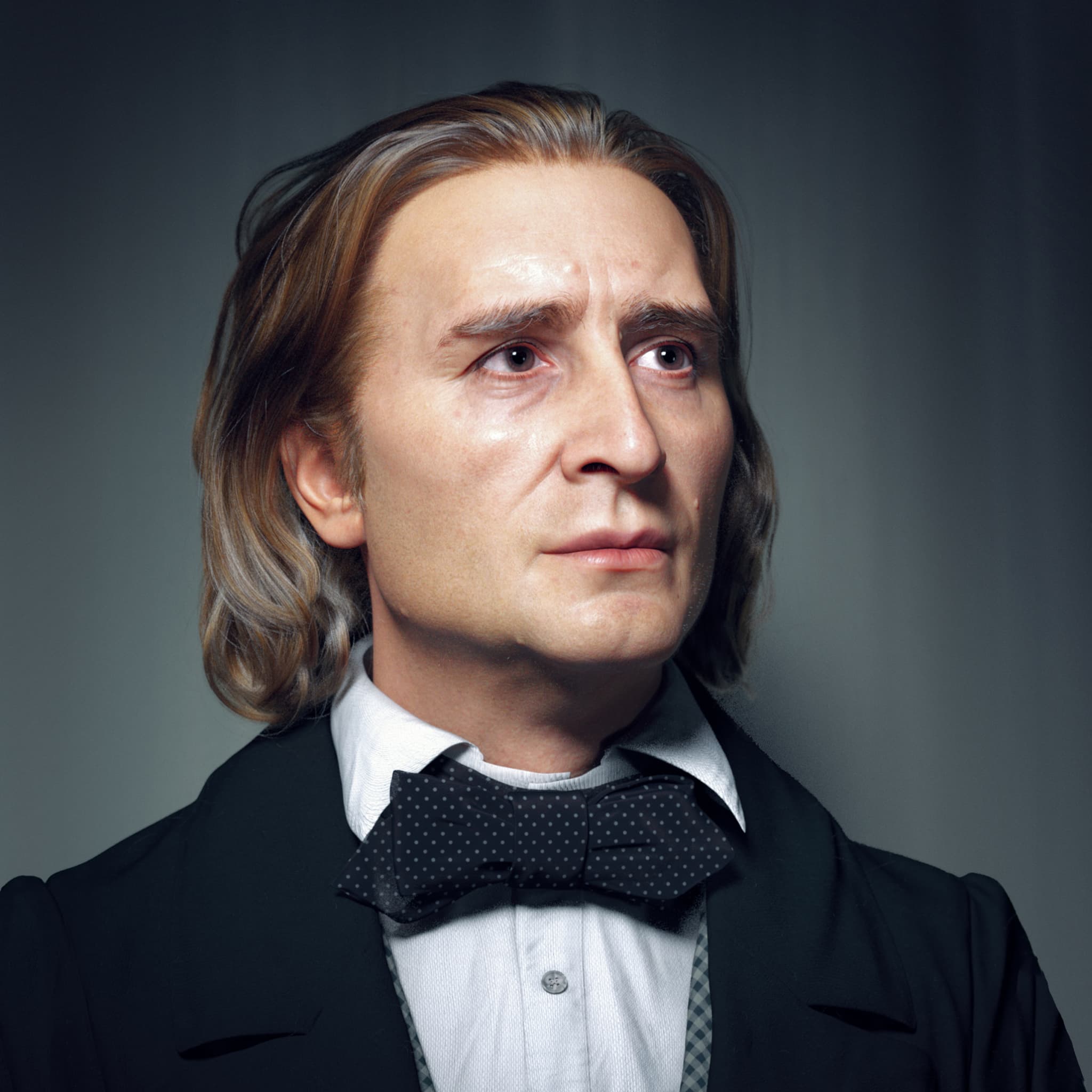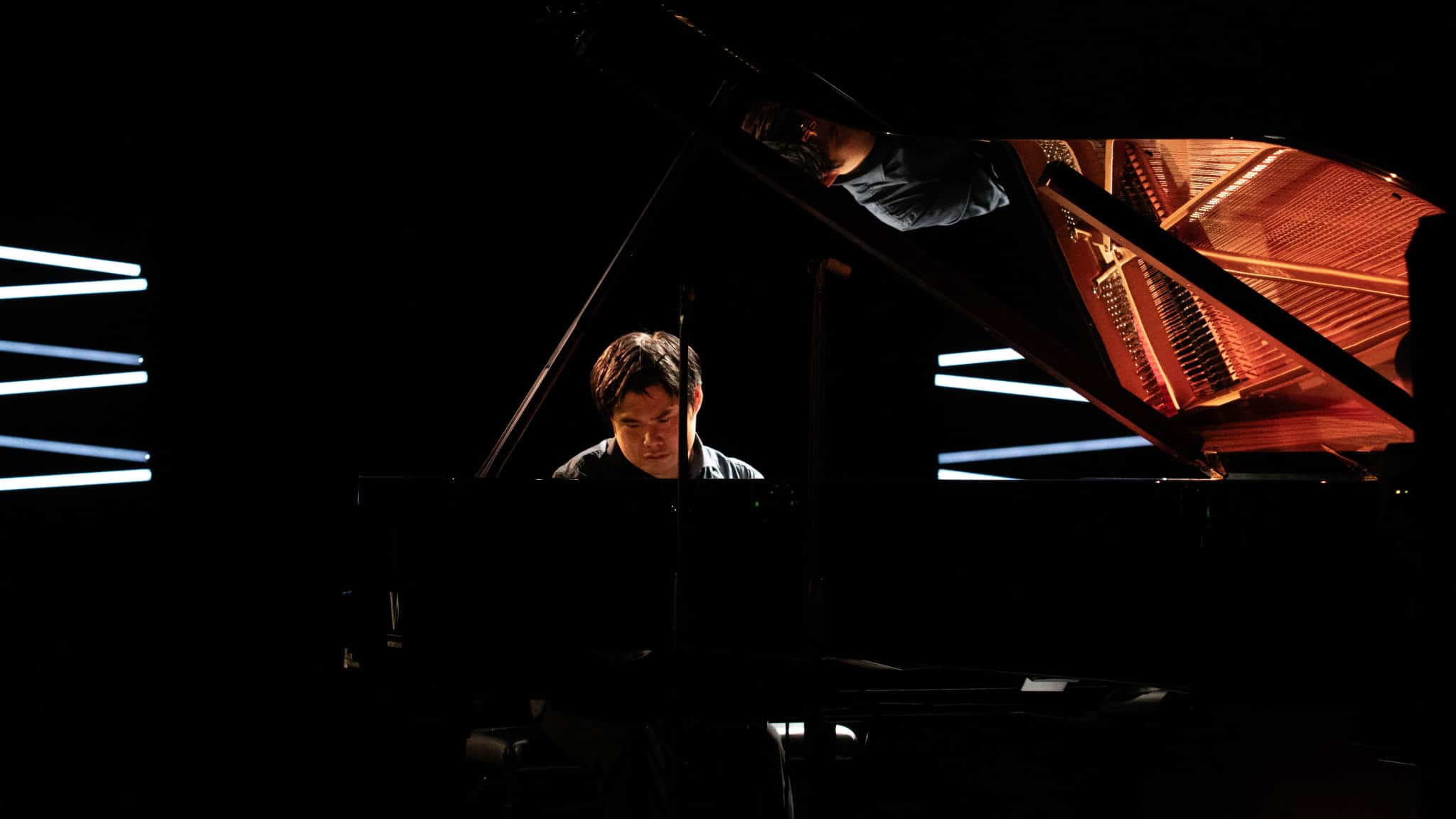Concerts and Operas
Albums
Appears On
Short Videos
AboutFranz Liszt

"He who plays the piano is lucky with women." If this wisdom from Johannes Heesters ever held true, it was for Franz Liszt. For wherever the gaunt man with the extraordinarily long, witch-like fingers stopped on his European tours, he wasn't met – as Robbie Williams would be two centuries later – by screaming, braces-wearing teenagers. Hordes of baronesses and countesses would suddenly faint at Liszt's performances, completely forgetting their good upbringing. Mature ladies would fight over a handkerchief Liszt had used and lie in wait for him at his hotel. And even a cigarette he had discarded was, according to an eyewitness, "smoked on by a female fan with imagined delight, despite repeated vomiting."
Watch Franz Liszt's Concerts and Operas on STAGE+
During his virtuoso years starting in 1839, the heartthrob Liszt not only developed into a Don Juan. With his playing, he definitively launched piano playing into a new galaxy. As if he had not five, but at least ten fingers on each hand, he would transform the black and white keys into an entire orchestra. Or he would pepper his compositions with such hellish difficulties that one believed they were listening not to a human being of flesh and blood, but to a demon. It is hardly surprising, therefore, that Liszt's career was a singular success story. Built up as a child prodigy by his father, Liszt, born in Hungary in 1811, quickly became one of the most influential, because most versatile, musical personalities of the 19th century. He championed the operas of his son-in-law Richard Wagner as Kapellmeister and introduced his French colleague Hector Berlioz to Germany. And with his orchestral works, Liszt pulverized the symphony form just as he exploded the classical piano sonata. Liszt's B minor Sonata is among the most visionary music ever composed for the piano.
Indeed, Liszt's vast piano oeuvre remains a duty and a challenge for all pianists to this day. Whether his effective "Hungarian Rhapsodies" and transcriptions of famous opera melodies, whether his "Mephisto" Waltzes or the musical travelogue cycles "Années de pèlerinage." Liszt died in Bayreuth 125 years ago. But 2011 also marks his 200th birthday. And so, in the coming months, international top pianists will ensure a true revival of Lisztomania. Daniel Barenboim and Pierre-Laurent Aimard are throwing themselves at his feet with new recordings. While reference recordings by seasoned Liszt specialists like Alfred Brendel and Krystian Zimerman perfectly round off the Liszt year. Listen to Liszt – and simply marvel!
Biography:
Although Franz Liszt had only sporadic piano lessons until he was ten years old, by the age of eleven, his piano playing already astonished the entire musical scene of Vienna (including Beethoven and Schubert), and before he was thirteen, Paris and London were also at his feet. Over the next twenty years, he achieved unprecedented virtuosity on his instrument. Liszt became the most successful pianist in music history and a darling of high society throughout Europe, but was also famously notorious for his various love affairs. In 1848, he became Kapellmeister to the Grand Duke of Weimar, where he spent the next thirteen years. As a dedicated advocate for the music of his contemporaries, Liszt conducted not only his own works in premieres and first performances but also pieces by Donizetti, Berlioz, Schumann, Wagner, and Verdi. He had numerous talented students, but also dedicated a large part of his time to composing, and the list of his works is extensive accordingly, especially in the areas of orchestral, choral, and piano music. Liszt's contributions as a composer have been evaluated very differently by posterity, but the originality of his harmonic and formal experiments was never questioned.
























